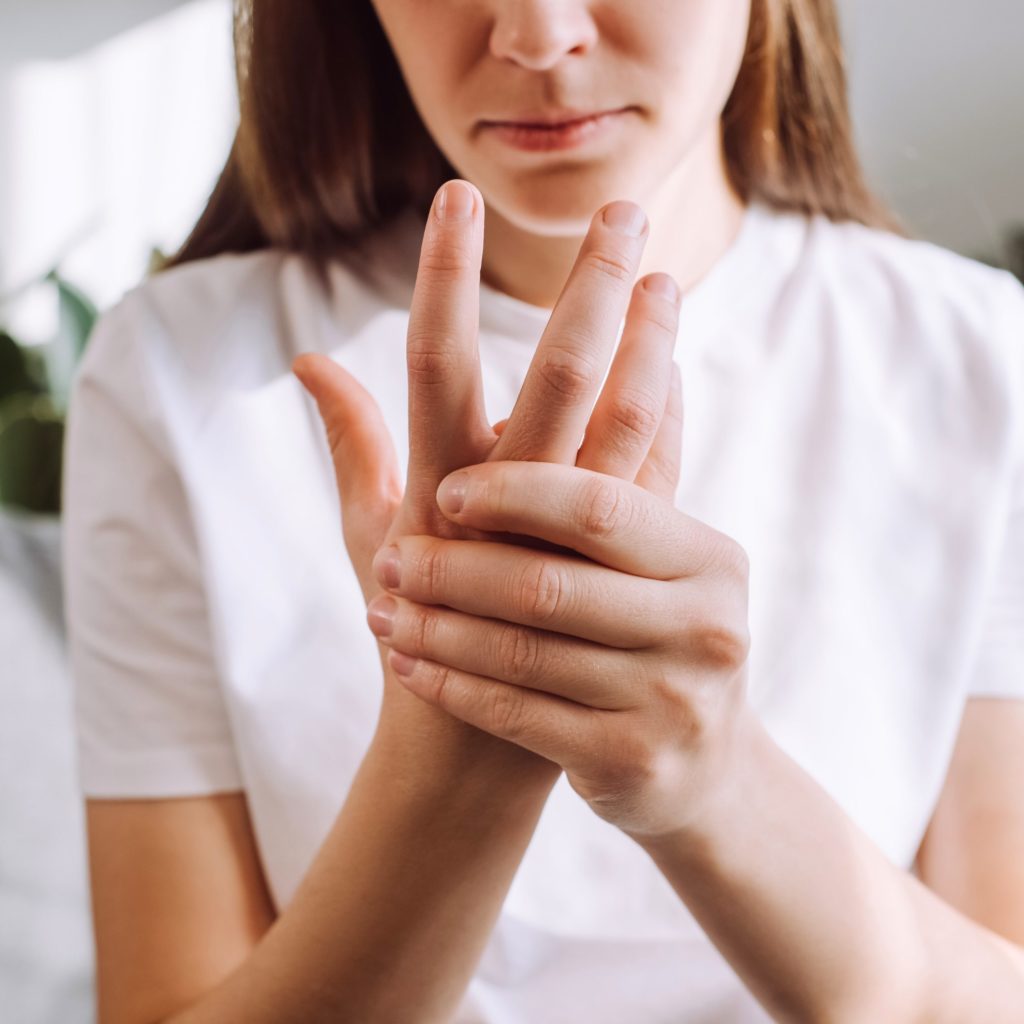
Autoimmune Arthritis
Autoimmune Arthritis
Autoimmune Arthritis is a group of diseases described by an overactive immune system which attacks the joints causing pain and inflammation. When the immune cells attack the body’s own tissues it results in damage, deformity, instability, and even scarring within the joints. Often it will also affect other organs such as the lungs, heart, eyes, tendons, and skin.
Symptoms of inflammatory arthritis are not localized to the joints but can also result in severe fatigue, brain fog, fever, weakness, and organ damage. Causes are thought to be a combination of genetics, diet, environment, and stresses. Blood work that may signal autoimmune arthritis include rheumatoid factor, C-reactive protein (CRP), and erythrocyte sedimentation rate (ESR).
Read More >>>
Rheumatoid Arthritis
Rheumatoid Arthritis: is a disease that leads to inflammation of the joints and surrounding tissues. Most of the time the symptoms occur in the same joints on both sides of your body. With RA the immune system attacks the fluid around the joints as well as the synovial lining between the joints. The symptoms include persistent pain, stiffness, swelling, progressive joint destruction, limited range of motion, as well as severe fatigue. It usually begins in the hands and feet but as the disease progresses symptoms often spread to the wrists, elbows, shoulders, ankles, knees, and hips.
Women are 4x more likely to develop RA than men. New research shows that RA can also affect the eyes, heart, lungs, and skin. Diet and lifestyle changes can have a positive effect on the symptoms of RA. Following an anti-inflammatory diet, identifying and addressing life stressors, addressing nutrient deficiencies, and appropriate exercise can greatly reduce your symptoms and improve your quality of life.
Juvenile Rheumatoid Arthritis
Juvenile Rheumatoid Arthritis: also known as pediatric rheumatic disease or childhood arthritis is an inflammatory disease that affects children under the age of 16. Like other autoimmune arthritis conditions this disease is hallmarked by the inflammation and destruction of joints. Symptoms include stiff joints that swell and are painful, weakness, fatigue, and growth problems. JRA can also cause fever, anemia, and can affect the heart, lungs, eyes, and nervous system. Any joint can be affected, however many children do not complain of joint pain.
JRA flares are unpredictable, some children will outgrow the disease and others will have it into adulthood. Parents can support their children by finding a trusted pediatric rheumatologist, avoiding processed foods, providing whole natural foods, supporting playful fitness, and addressing nutritional deficiencies.
Psoriatic Arthritis
Psoriatic Arthritis: is an autoimmune arthritis that affects the skin and joints. Similar to RA an overactive immune system attacks the joints but in addition it also causes a psoriatic condition that results in a rapid increase in skin cell production that leads to raised, scaly patches on the skin. These psoriasis patches are often found in the hands, feet, wrists, ankles, knees and sometimes along the hairline.
PsA usually begins between the ages 30 and 50, with men and women being equally susceptible. Symptoms include stiff, painful, swollen joints along with scaly patches on the skin and severe fatigue. Diet and lifestyle changes can result in drastic improvement in your symptoms. Following an anti-inflammatory diet, avoiding dairy products, identifying and reducing stress, addressing nutrient deficiencies, and regular exercises can have a profound effect on your overall wellness and symptoms.
Ankylosing Spondylitis
Ankylosing Spondylitis: is an autoimmune disorder which affects primarily the spine and hip joints, breastbone, and large joints in the body. AS can result in noticeably reduced motion in the spine and over time result in a fused vertebrae and hunched over posture. This type of autoimmune arthritis actually occurs more often in men than women. Symptoms include pain and stiffness in the lower back, hips, sternum and neck along with severe fatigue. Symptoms are generally at their worst in the mornings and after periods of inactivity.
You are more likely to have AS if you have other autoimmune diseases like Crohn’s, Colitis, or Psoriasis. Just like any other inflammatory conditions following an anti-inflammatory diet, addressing nutritional deficiencies, and daily movement are essential to wellness. Seeking the guidance of a physical therapist can be helpful if you are further along in the disease.
